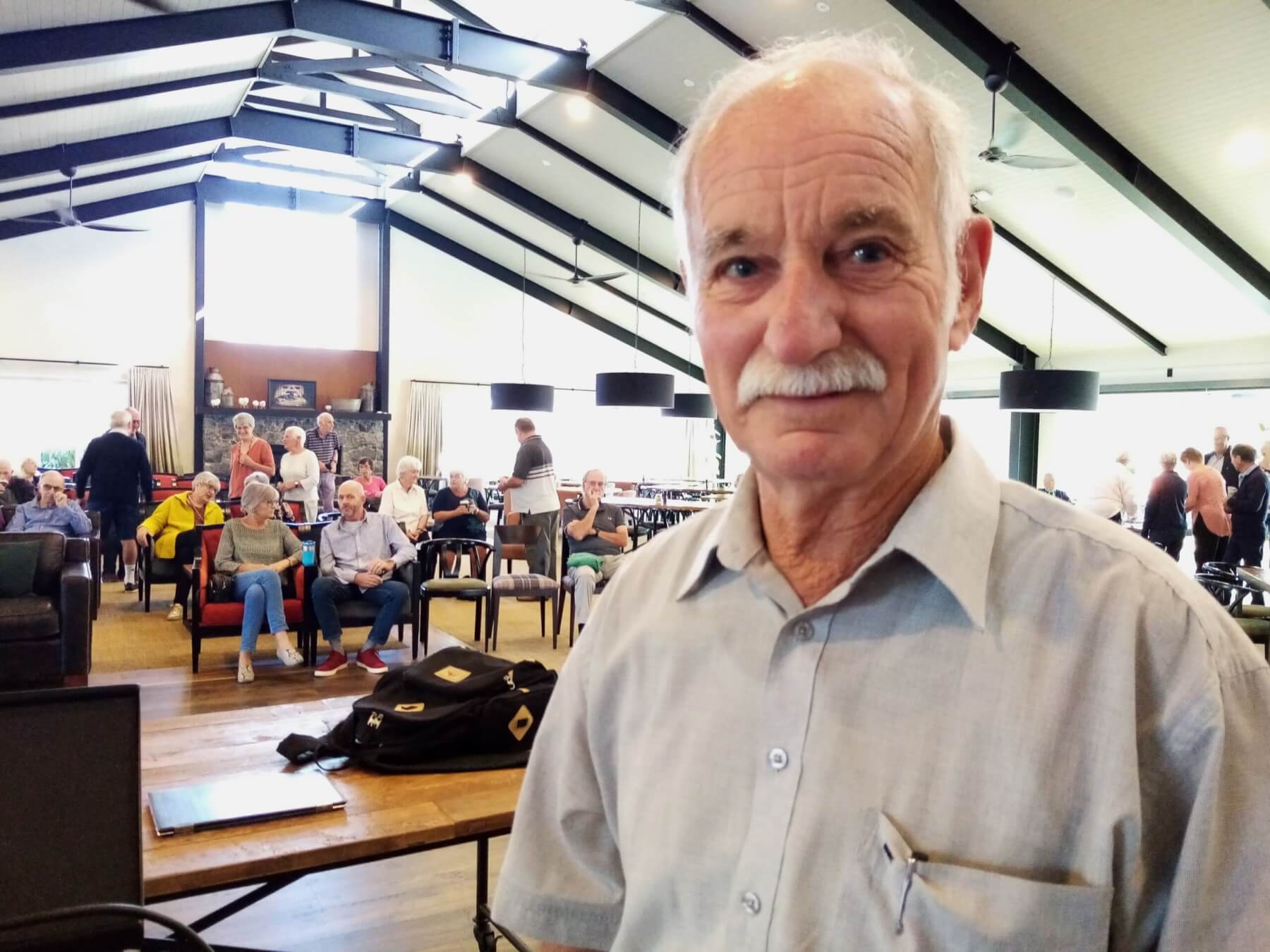
Nuclear physicist Dr Gavin Wallace believes New Zealand can benefit from nuclear power into the future.
Nuclear physicist Dr Gavin Wallace describes some approaches to nuclear power as ‘irrational’ and says the radiation that surrounds us most of the time is nowhere near as harmful as many think it is.
Speaking to the Cambridge U3A group, the Scots-born physicist conceded that some level of fear was ‘understandable’ because radiation cannot be felt, smelled or seen.
“However, it is well researched and well understood. It is handled conservatively, the negative health effects are over-stated, and New Zealand makes good use of it,” he said. “And in terms of power generation, it must be an option in a world dealing with global warming. I’m not advocating we should go fully nuclear, but it is not something we should rule out either.”
Dr Wallace, QSM, has more than 50 years’ experience in the field. He retired from the Institute of Geological and Nuclear Sciences after 41 years but still contracts for GNS, touring the country delivering radiation safety courses. Away from nuclear physics, he has notched up 50 years as a volunteer firefighter in his home area of Wainuiomata, where he also heads the community’s historical society.
His talk to the U3A group was on New Zealand’s nuclear-free stance, something he suggested was not founded in fact.
“There is a bit of hypocrisy around Nuclear Free New Zealand. Not many people know, for example, that it is still legal in this country to build a nuclear power station, and that we make good use of nuclear techniques… in medicine, for example. Small, nuclear power plants will come on stream in the next year or two. Regulatory authorities are controlling nuclear waste… it is very tidy when compared to coal.”
He addressed the nuclear science timeline, walking the audience from the 1885 discovery of x-rays by German physicist Wilhelm Röntgen, through Marie Curie’s discovery of polonium and radium to the pioneering studies of radioactivity and atoms done by New Zealand-born British physicist Ernest Rutherford, who went on to became known as the father of nuclear physics. He won a Nobel Prize for his work and is the only New Zealander to be buried at London’s Westminster Abbey.
Dr Wallace spoke about the realities of ‘nuclear New Zealand’ rather than ‘nuclear free New Zealand’. He said many of the earlier risks associated with it – such as the damage done through pedoscopes found in shoe stores but discontinued in the 1960s, where high doses of radiation were used to show the bones of the feet – had long been overcome.
Concerns about microwave ovens ‘nuking’ food were groundless, he said, and fears about New Zealand’s ‘shaky isles’ geological character over-rated. Investigations into major global nuclear events, such as the 1986 Chernobyl disaster and 2011 Fukushima earthquake and tsunami, implicated other factors.
It is cost-effective and plausible for New Zealand to make use of small modular power plants that have the necessary seismic safeguards, he said.








